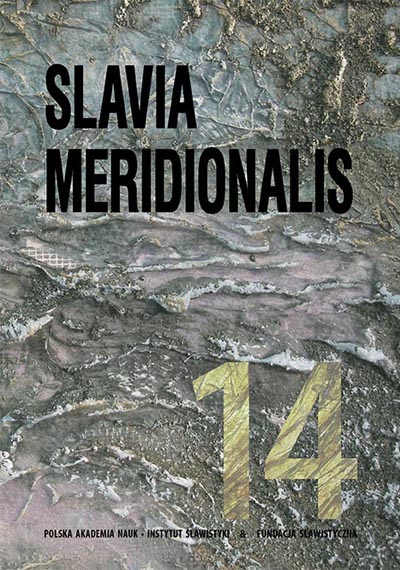Koniec eschatologii? Poszukiwania modus existendi w świetle (po)nowoczesnych apokryfów bułgarskich
The end of eschatology? Searching for a modus existendi according to (post-)modern Bulgarian apocrypha
Author(s): Ewelina DrzewieckaSubject(s): Language and Literature Studies, Studies of Literature, Bulgarian Literature
Published by: Instytut Slawistyki Polskiej Akademii Nauk
Keywords: eschatology; Modernity; apocrypha; Bible; Bulgarian literature
Summary/Abstract: The paper is an attempt to reflect on the place of eschatological themes in modern and post-modern Bulgarian literature from the viewpoint of the istory of ideas. The objective of the study is literary paraphrases of the evangelical history of the 20th and early 21st centuries, which are perceived as modern apocrypha and thus as evidence of philosophical exploration of the epoch. These are placed in the context of three worldview systems competing in Europe: Judeo-Christian, Gnostic (Esoteric), and rationalistic (the Enlightenment), which considered as a epistemological paradigms (or ideal types) serve only as a hermeneutic perspective. In this light, the authors’ paraphrases about God’s Kingdom (and its Prophet and Messiah) give a diagnosis about the present crisis (of values), and therefore define an evil, speaking in fact about the Bulgarian search for a Modus Existendi. Their soteriological proposal bring about an eschatological perspective, revealing some ethical concepts (hidden in the author’s anthropology). The subject of interest relates to sources of salvation (i.e. the higher good), which manifest itself in the concepts of time (and narrative). Therefore, at the philosophical heart of the paper is Charles Taylor’s idea about the fundamental relation between the concepts of good, self, narrative and society. The analyses are provided in the light of the philosophical reflections of Agata Bielik-Robson, Philip Rieff, Paul Ricoeur, Luis Dupré, and Jacob Taubes. The main aim of the paper is to reveal the progressive process of internalising the sources of salvation, which makes the eschatological perspective disappear. Therefore, after a brief presentation of the Judeo-Christian and Gnostic apocrypha from the first half of the 20th century,in which the promise of (some king of) salvation is still valid, it is shown that most of the Bulgarian apocrypha written after 1989 create an absolutely nihilistic message, since with the help of the positive pattern they give a radically negative interpretation of the world, and thus essentially announce a complete lack of hope for its improvement. Paradoxically however, by creating a world without a good end, by revealing the mechanism of slipping into a Neognostic worldview (based on the reversed Gnostic spiritual monism), the Bulgarian apocrypha illustrate the need for a (re)dynamisation of the axiological sphere, the need for a restoration of multidimensional existence. In consequence, a connection is pointed out – according to Taubes – between the condition of the eschatological man, who pins his hope on the future, and the messianic necessity to approve the ontological leap.
Journal: Slavia Meridionalis
- Issue Year: 2014
- Issue No: 14
- Page Range: 351-384
- Page Count: 34
- Language: Polish

